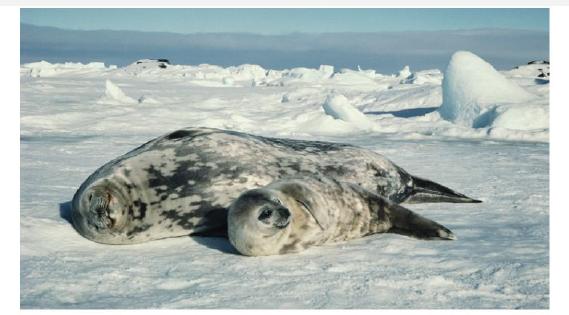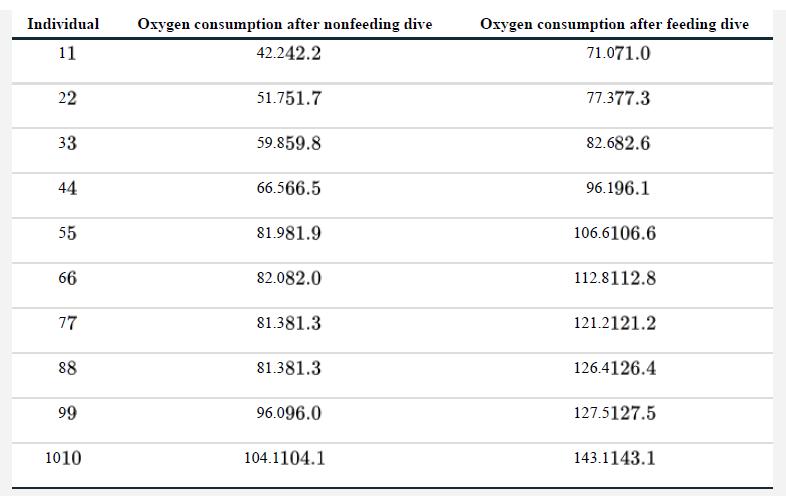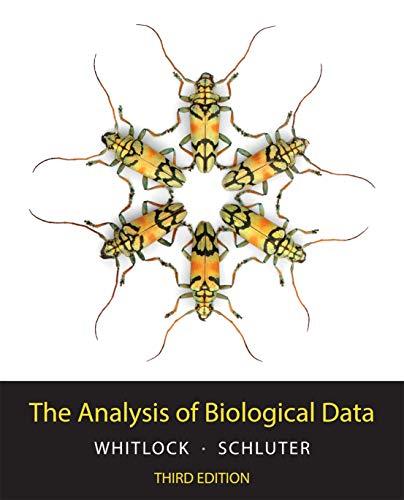Weddell seals live in the Antarctic and feed on fish during long, deep dives in freezing water.
Question:
Weddell seals live in the Antarctic and feed on fish during long, deep dives in freezing water. The seals benefit from these feeding dives, but the food they gain comes at a metabolic cost. The dives are strenuous. A set of researchers wanted to know whether feeding per se was also energetically expensive, over and above the exertion of a regular dive (Williams et al. 2004). They determined the metabolic cost of dives by measuring the oxygen use of seals as they surfaced for air after a dive. They measured the metabolic cost of 10 feeding dives and for each of these also measured a nonfeeding dive by the same animal that lasted the same amount of time. The data, in (ml O2 kg−1), are as follows:


a. Estimate the mean change in oxygen consumption during feeding dives compared with nonfeeding dives.
b. What is the 99% confidence interval for the population mean change?
c. Test the hypothesis that feeding does not change the metabolic costs of a dive.
Step by Step Answer:

The Analysis Of Biological Data
ISBN: 9781319226237
3rd Edition
Authors: Michael C. Whitlock, Dolph Schluter





